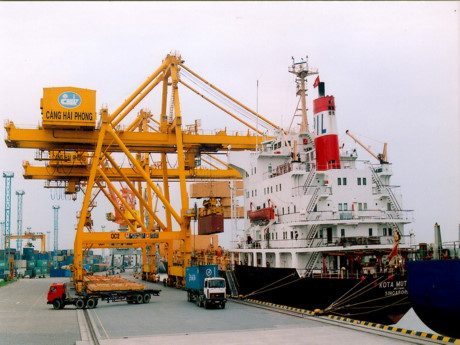
Việt Nam has one of the fastest-growing e-commerce sectors in the world. Last year, local e-commerce revenue grew 18 per cent to reach US$11.8 billion, accounting for 5.5 per cent of total retail sales of consumer goods and services nationwide. The COVID-19 pandemic has created tremendous pressure for change and new ways of doing business for firms, even small ones. The need for support from major e-commerce platforms that operate on a global scale is vital for local firms to overcome the difficulties of the pandemic.
Lại Việt Anh, deputy director of the Việt Nam e-Commerce and Digital Economy Agency (IDEA) under the Ministry of Industry and Trade, speaks about the issue.
What are the difficulties of traditional business methods amid the complex changes of the COVID-19 pandemic?
The COVID-19 pandemic is posing great challenges to all types of businesses. The biggest difficulty is that firms have to find ways to transform their business models and adapt to the pandemic context when in-person contact must be minimised. But at the same time, businesses are still facing the requirement to approach customers and expand markets. Therefore, the requirement is to transform the business model, making full use of indirect communication channels in the online environment. This could help them interact with potential customers, negotiating and signing contracts in a non-traditional communication environment or digitalisation environment. E-commerce is a borderless environment. Businesses can reach potential customers anywhere in the world thanks to e-commerce. Any business, whether it's a micro firm or small or medium-sized enterprise (SME) can use the internet like large enterprises to find potential customers as long as their capacity meets the requirements.
COVID-19 has opened up opportunities for many commodities which had not been traded much online. For example, essential goods, agricultural products and handicrafts are items that were previously not associated with e-commerce. However, the pandemic has caused a huge explosion in the number of online transactions with these items.
How competitive are Vietnamese enterprises on e-commerce platforms?
We have heard from a number of large e-commerce platforms that the competitiveness of Vietnamese enterprises is very good. Many large and foreign sellers on e-commerce websites said that their source of goods comes from Việt Nam.
However, many Vietnamese firms do not have a large sales volume and great reputation because they have not focused on marketing and exploiting digital opportunities to build and promote brand names. Local businesses need to pay attention to this issue as the quality and internal competitiveness of Vietnamese enterprises' goods are very strong. They need to improve their commitment and efforts to exploit digital opportunities and build brands. E-commerce helps us build a brand very quickly. But if there is a problem, it will also hurt the business image very quickly.
Big brands like Trung Nguyên Coffee have been successful in the e-commerce environment on Amazon, Alibaba and some other major platforms. In addition to large enterprises, many dynamic SMEs have also been successful in e-commerce. They are very interested are in e-commerce as they do not have the advantage of traditional distribution channels like large enterprises. E-commerce gives them an equal opportunity with large enterprises to expand their market. Successful local SMEs on Amazon and Alibaba are mainly enterprises producing handicrafts, household goods and confectionery. E-commerce has a very important feature that gives the ability to personalise products according to customer needs. SMEs are very flexible in their production to meet needs. This is why SMEs should focus on exploiting e-commerce.
How should Vietnamese businesses prepare to join e-commerce platforms?
With the existing policies of the Government as well as the co-operation and support of large and reputable e-commerce platforms, local firms have been equipped with knowledge and skills to trade online. Businesses need to seize and exploit opportunities. They should think that this is not a game, but a serious business that requires an investment of people, time and efforts to exploit digital opportunities. The trend of digitisation is a long-term and irreversible trend. Enterprises need a long-term strategy investing in people and skills to constantly update new technologies. They need to build and preserve their brand for a long time as this is a big environment with the participation of new and big brand names. If firms want to maintain their business in the e-commerce environment, they need to ensure their brand’s vitality.
How will IDEA support SMEs to effectively use e-commerce platforms?
As part of the national e-commerce development programme and activities within the framework of the 2016-20 e-commerce master plan, the Ministry of Industry and Trade and IDEA will deploy many activities to support businesses in the digital transformation process. We will provide skill training programmes for enterprises in the e-commerce environment and connect them with major e-commerce platforms both inside and outside the country. We have worked with a number of big e-commerce floors like Amazon Global Selling Vietnam and others in China, South Korea and Japan. We want to introduce products and brands that have been praised on the international market through e-commerce platforms. We will also help businesses build their brand and reputation in the online environment. — VNS































